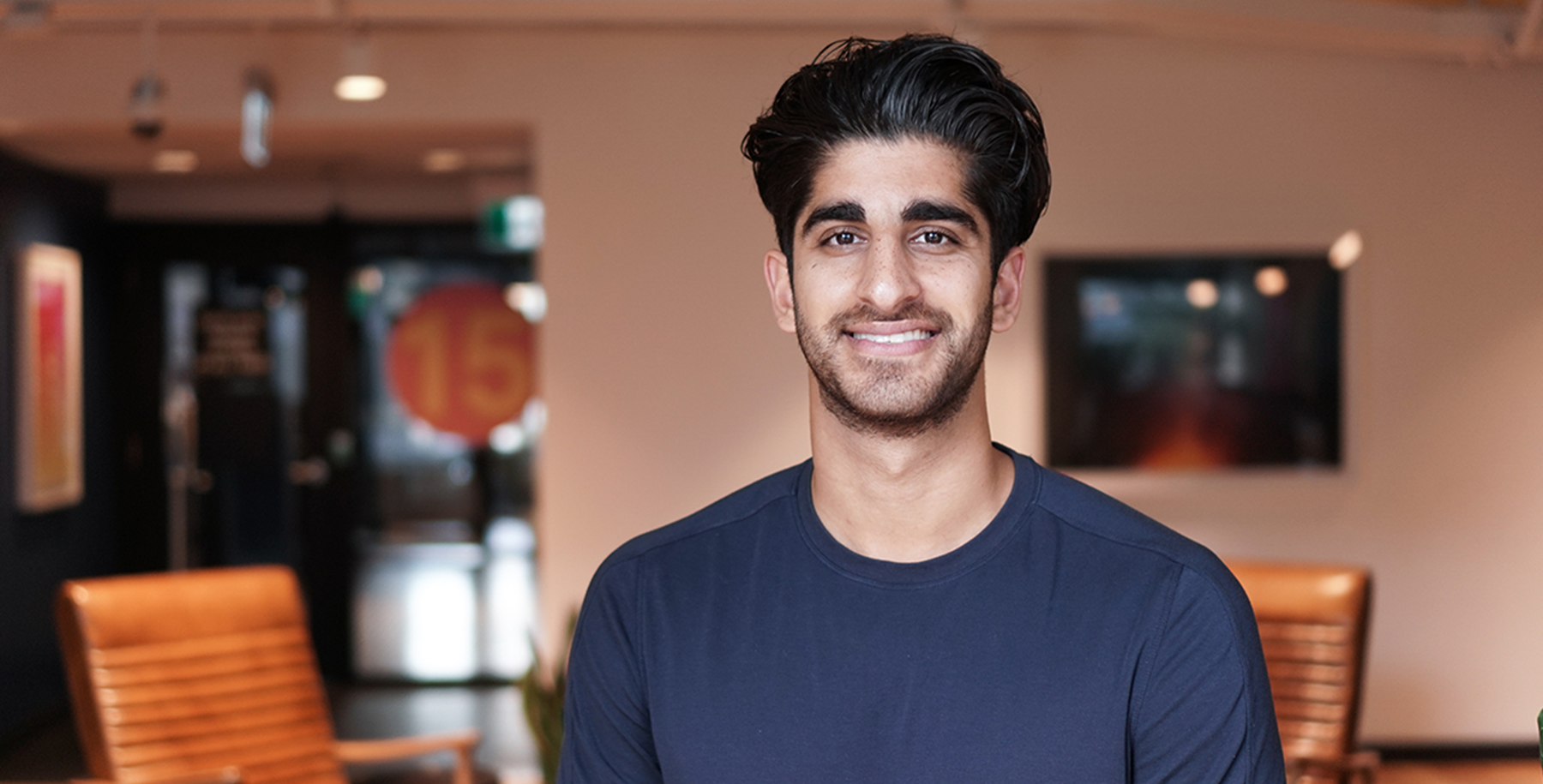Alum Nishal Kumar wastes no days
September 15, 2023

September 15, 2023

Nishal Kumar ran into a problem in the summer of 2017. He was tackling North Vancouver’s three-kilometre, leg-burning Grouse Grind mountain trail a few times a week—but noticed if he’d had just a couple of drinks containing alcohol the night before, he didn’t feel in top form.
“I'm an early riser,” he says. “I love to work out in the morning so I want to wake up feeling my best. Even if you’re out celebrating or socializing on a Thursday night, Friday morning you want to do your best on the Grind.”
On his way to earning a Bachelor of Science degree at UBC, Kumar had learned a key message: Think first principles. What's the simplest form of the problem you’re trying to solve?
“I have to give a lot of credit to Earth, Ocean and Atmospheric Sciences professors Christian Schoof, Mark Jelinek, Catherine Johnson and Michael Bostock because they instilled a foundation of first principles and challenged us every day to think how to solve problems.”
Kumar dove into research papers and found that the cause of his problem is a toxin called acetaldehyde, a byproduct formed when liver enzymes break down alcohol. Acetaldehyde is 20 times more toxic than alcohol and contributes to negative after effects of alcohol. He then conducted a science experiment on himself to find natural ingredients that could help liver enzymes work better.
That led to the creation of No Days Wasted in 2018, a successful health supplement business that makes a product to ward off the effects of alcohol after what Kumar calls “celebratory and aspirational moments.” No Days Wasted has received approvals from Health Canada and is distributed in over 800 retail stores across North America. The company is also looking to bring their hydration and immune support products to Canada.
Although Kumar majored in geophysics at UBC, his swerve into biochemistry wasn’t much of a stretch.
“Like every science student coming into UBC, I wanted to be a doctor. In my second year, I went into biology and I noticed that I liked having a little bit more balance in my life. My passion to be a doctor was starting to fade, but my love for science was stronger than ever. And then in my third year, I moved into a combined major biology and chemistry and environmental science.”
But Kumar also liked doing business and loved applied science—that's where geophysics came into play. He’d already taken a lot of the math courses and foundational physics classes to make the transition happen, along with the prerequisites for UBC’s E-Commerce program.
“I just went full on fourth year, majoring in geophysics and a commerce minor, and it was fantastic. I loved the combination because they’re so drastically different. When you go from a geophysics class to your next class in managerial accounting, it's almost like a break—an extracurricular or hobby that gives your mind more balance and allows you to focus a little bit harder.”
As an undergraduate, Kumar’s entrepreneurial streak emerged after he landed a position with the then fledgling electric car company Tesla.
“They had only a handful of cars on the road but I thought: This is very cool and it has a science foundation. Understanding the chemistry of charging a battery. Understanding the unit economics where you're tying the dollars and cents to the movement of charged particles and electrons. That was super invaluable. I wouldn't trade that experience for anything.”
After graduating in 2015 he transitioned into a full-time sales and marketing role with Tesla, then jumped to a geotechnical engineering firm. But Kumar didn’t let go of Tesla entirely. He’d noticed there was nowhere to hang a suit jacket in the $100,000 cars, so he launched a side hustle manufacturing coat hooks and other aftermarket Tesla accessories.
Kumar advises students who are eyeing the job market to consider honing their sales and customer service skills through summer jobs or work placements.
“Sales and customer service are great, because you're interacting with people all the time. You get concise with your language, and you learn how to master conveying a complex message in a simple form to a lot of people all at once.”
We honour xwməθkwəy̓ əm (Musqueam) on whose ancestral, unceded territory UBC Vancouver is situated. UBC Science is committed to building meaningful relationships with Indigenous peoples so we can advance Reconciliation and ensure traditional ways of knowing enrich our teaching and research.
Learn more: Musqueam First Nation